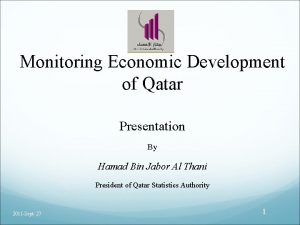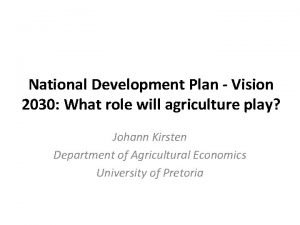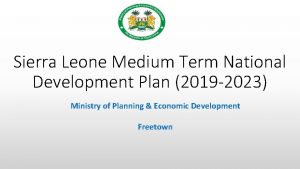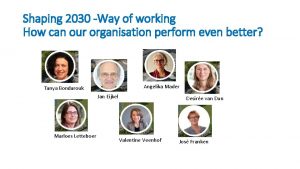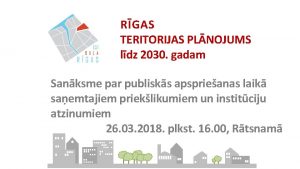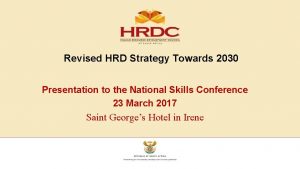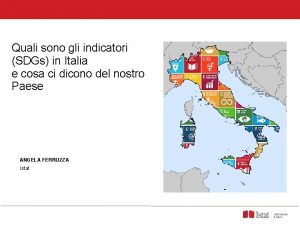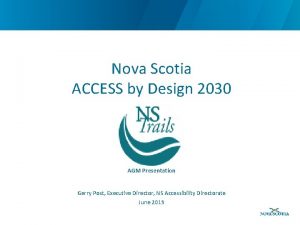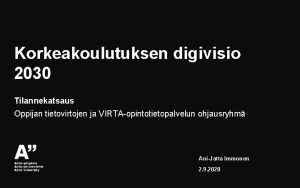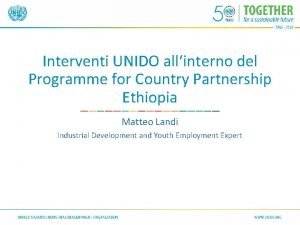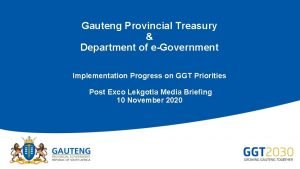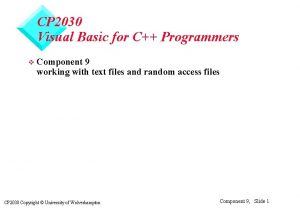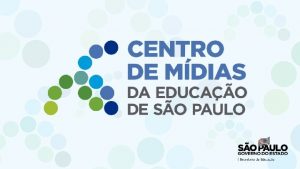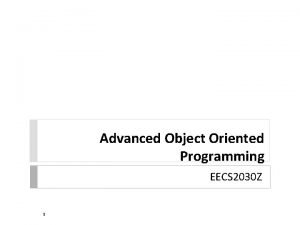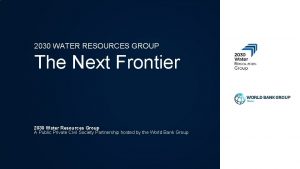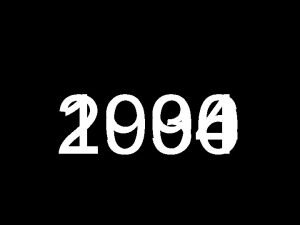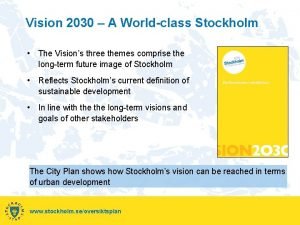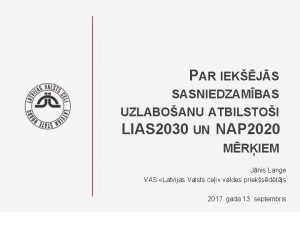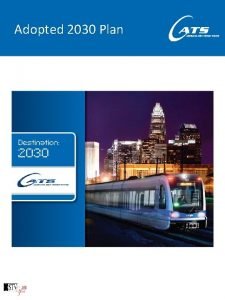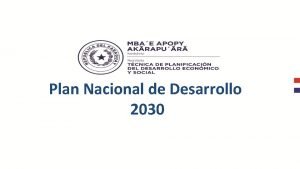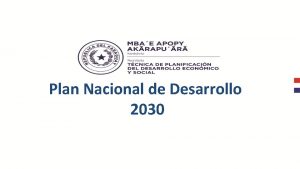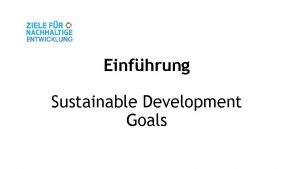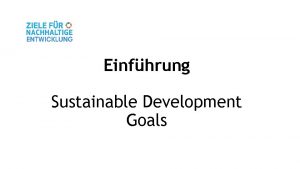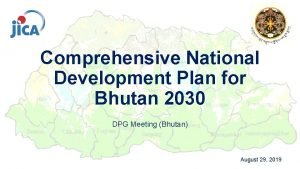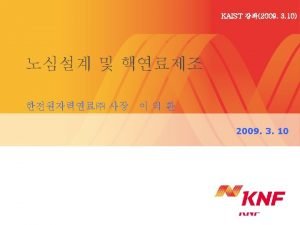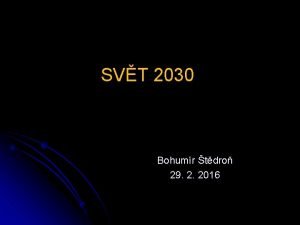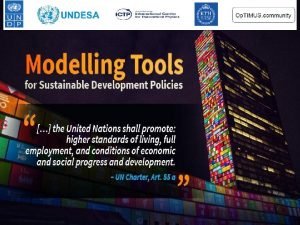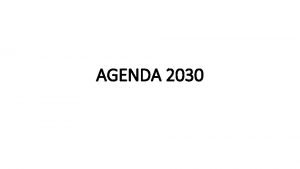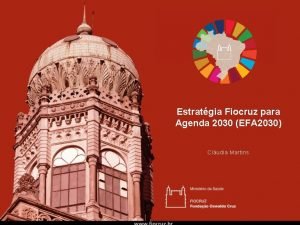THE USE OF THE NATIONAL DEVELOPMENT PLAN 2030




















- Slides: 20

THE USE OF THE NATIONAL DEVELOPMENT PLAN 2030 TO DEVELOP COLLABORATIVE PROBLEM SOLVING SKILLS IN SECONDARY SCHOOL LEARNERS DR HELEN SIDIROPOULOS (SOUTH AFRICA)

Background Research Questions in 2015 • Is there any significant relationship between Thinking Skills proficiency in Grade 10 and the: – number of distinctions attained in the NSC in Grade 12? – English Home Language results in the NSC in Grade 12? – Mathematics results in the NSC in Grade 12?

Findings • Significant positive relationship between scores in Ie. BT TS and the students’ : – attainment of number of distinctions Ø(r = 0. 503; P <. 001). – achievement in English in the NSC Ø(r = 0. 525; P <. 001). – achievement in English in the NSC Ø(r = 0. 501; P <. 001)

Discussion and Conclusion • The results suggest that Thinking Skills, as measured by the Ie. BT TS, was a predictor of student performance. • The implication is that the achievement of academic excellence in the NSC has a positive relationship with higher order thinking skills (at least 2 years in advance). • It then becomes incumbent on schools to ensure that the teaching and learning of these skills in the early secondary school years receives proper attention and that teachers are properly equipped and trained.

Trending CPS • Collaborative problem solving (CPS) is a critical and necessary skill used in education and in the workforce. . . • Research Questions in 2018 … – the domain and the relationships CPS & NSC


Context • The National Development Plan 2030 (NDP) is a blueprint for tackling South Africa’s challenges – roadmap for eliminating poverty and reducing inequality in SA by 2030 • NDP & SDG both encourage active citizenry as a way to achieve the goals

Significance • Collaborative Problem Solving skills which combine the capacities of collaboration, problem solving, critical thinking and communication are considered to be invaluable for the Fourth Industrial Revolution. • Unfortunately, they are frequently not taught explicitly, the assumption being that learners learn these skills implicitly in various ways. • This presentation reports on how the IEB is attempting to bring the development of such generic skills to the forefront by using the NDP as a driver of interest, and so improve the learning and assessment of these fundamental skills.

IEB CPS Challenge 2018 • In our interdependent world, the development of skills and competencies that serve local and global challenges is essential. • The IEB has developed a learning experience for school learners that require the application of collaborative problem solving (CPS) skills toward resolving complex problems requiring extraordinary problem-solving skills – ‘wicked’ problems. • The learning experience challenges learners to apply their grit and ingenuity to develop a solution to a ‘wicked’ problem that falls within the NDP goals. • The IEB wants young learners across South African schools to see themselves as people who can solve big problems - and help them understand that they have an active role to play in achieving the NDP Goals by 2030.

The CPS Challenge Part A • Learners select a problem to solve that is given in the summary of objectives and actions outlined in the Executive Summary of the NDP (2030). • The solution to the problem may be for any context of their choice, i. e. school level, community level, local or global.

Procedure • Phase 1/Week 1: Presenting problem solving question to peers • Phase 2/Week 2: Presenting problem solving question to teacher • Phase 3– 4/Week 3– 4: Learners check-in with Teacher • Phase 5/Week 5: Presenting to all the Groups

Phase 6/Week 6: (15 minute Pitch) • After considering the feedback from the other groups, teams will pitch their solution to their teachers and peers. • Pitch: action plan or innovation (3 D, App, Presentation, Drone, Paper, Cobot, etc. ) (you have 15 minutes to convince us)

Part A : Assessment – Problem Solving Rubric • Problem definition • Feasibility (of solution) • Suitability (solution. . . to SA) – Collaborative Team Member Rubric • Responsible , Cooperative , Leading , Selfdirected – Feasibility Rubric

Part B • Teams: 5 learners selected at random from different schools…(unconscious bias) • IEB to provide resources (48 hours prior) to contextualise problem identified in the SA NDP which needs to be addressed. Problem has global consequences. • Learners will be given 5 questions each that address one of 5 thinking skills: critical, creative, ethical, systems and problem solving. • Learners submit a solution to the problem after 6 hrs. of collaborative work.

Anonymous Platform for Part B IEB will setup the system by linking learners to the CPS Platform that links learners to each other and to a teacher Teacher CPS Learner 1 Learner 2 Learner 3 Learner 4 Learner 5

Collaboration Log Learner(s) and Learner(s) & Teacher(s) collaborate and discuss the CPS challenge within the system via the collaboration log

#SONAReply Ramaphosa calls for unity, new social compact (20 February 2018) • Ramaphosa demurred that he had a blueprint in the form of the National Development Plan, and added that it was democratic tradition in South Africa to have a wide dialogue on every issue of critical importance. • The Constitution, he recalled, saw nearly two million submissions from the public when he was steering its drafting two decades ago. • “This is how our people want to be involved, they say nothing about us without us. ”

Are we there yet ? Next Generation Skills Continuum : 21 st Century Skills … 4 th Industrial Revolution… Collaborative Problem Solving for Social Change

We hope the engagement with this challenge will achieve the following: • Create deeper awareness of the inequalities present in South Africa. • Build responsibility and advocacy amongst students for social change. • Understand the importance and power of collaborative thinking in attaining stronger outcomes. • Engage in action-driven thinking and problem solving that is impactful and speaks to progress.

Thank you
 Qatar national vision 2030 ppt
Qatar national vision 2030 ppt National development plan
National development plan Sierra leone national development plan
Sierra leone national development plan Anne marie clancy
Anne marie clancy Smarter 2030
Smarter 2030 Ol 2030
Ol 2030 Shaping 2030
Shaping 2030 Rīgas teritorijas plānojums 2030
Rīgas teritorijas plānojums 2030 E hrdsa
E hrdsa Agenda 2030
Agenda 2030 Access by design 2030
Access by design 2030 Digivisio 2030
Digivisio 2030 Agenda 2030
Agenda 2030 Ggt 2030 education
Ggt 2030 education Cp 2030
Cp 2030 Agenda 2030 geografia
Agenda 2030 geografia Eecs 2030
Eecs 2030 2030 water resources group
2030 water resources group 2030 - 2004
2030 - 2004 Vision 2030 stockholm
Vision 2030 stockholm Lias 2030
Lias 2030
